Environmental activists often focus on facts and data, as if more climate information will lead to more climate action. That strategy may be effective with some communities, but overall it hasn’t prevented global emissions from climbing year after year or habitats from being destroyed day after day.
Many folks in the environmental movement are thinking a lot about how to make messaging more effective. But it’s not just the message we need to question—it’s also the messenger.
In the U.S., white evangelical Christians are not known for their strong support of environmental protections or for believing that humans are even causing climate change, but maybe they haven’t had the right messengers.
Rev. Kyle Meyaard-Schaap is an evangelical Christian climate activist, which is not a combination of descriptors we often hear. Kyle has spent years building a movement of young messengers from within the evangelical community who speak a new language of creation care.
He believes that Christians don’t need to look any further than the Bible to become fierce and passionate advocates for ecological protection and climate action.
Rev. Kyle Meyaard-Schaap was National Organizer and Spokesperson for Young Evangelicals for Climate Action before becoming Vice President at the Evangelical Environmental Network.
I met Kyle in 2019 at a week-long climate storytelling retreat in New York City. I was super excited to continue our conversation here and dive deeper into his own ecological awakening, what scripture says about caring for the environment, and how Christians and non-Christians alike can find common values and build power together to care for life on Earth across cultural lines that often divide us.
You can listen on Substack, Apple Podcasts, Spotify, and other podcast platforms.
Please rate, review, and share to help us spread the word!
Rev. Kyle Meyaard-Schaap
Rev. Kyle Meyaard-Schaap serves as the Vice President of the Evangelical Environmental Network. He holds an undergraduate degree in religious studies from Calvin University (B.A. '12), a Master of Divinity degree from Western Theological Seminary (M.Div. '16), and is ordained in the Christian Reformed Church in North America (CRCNA). Much of his professional experience has involved the integration of theology, science, and action toward a deeper awareness of the Christian responsibility to care for God's earth and to love one’s neighbors, both at home and around the world. Kyle has been named to Midwest Energy Group's 40 Under 40 and the American Conservation Coalition’s 30 Under 30 cohorts for his work on climate change education and advocacy. Most recently, he was named a Yale Public Voices on the Climate Crisis Fellow for 2020. His work has been featured in national and international news outlets such as PBS, NPR, CNN, NBC News, New York Times, Reuters, and U.S. News and World Report. He is married to Allison and lives in Grand Rapids, Michigan with their son, Simon.
Quotation Read by Rev. Kyle Meyaard-Schaap
The Peace of Wild Things
When despair for the world grows in me
and I wake in the night at the least sound
in fear of what my life and my children’s lives may be,
I go and lie down where the wood drake
rests in his beauty on the water, and the great heron feeds.
I come into the peace of wild things
who do not tax their lives with forethought
of grief. I come into the presence of still water.
And I feel above me the day-blind stars
waiting with their light. For a time
I rest in the grace of the world, and am free.
- Wendell Berry © Wendell Berry. This poem is excerpted from New Collected Poems and is reprinted with permission of the Counterpoint Press.
Recommended Readings & Media
Transcript
Intro
John Fiege
Environmental activists often focus on facts and data, as if more climate information will lead to more climate action. That strategy may be effective with some communities, but overall, it hasn’t prevented global emissions from climbing year after year or habitats from being destroyed day after day.
Many folks in the environmental movement are thinking a lot about how to make messaging more effective. But it’s not just the message we need to question—it’s also the messenger.
In the US, white evangelical Christians are not known for their strong support of environmental protections or for believing that humans are even causing climate change, but maybe they haven’t had the right messengers.
Rev. Kyle Meyaard-Schaap is an evangelical Christian climate activist, which is not a combination of descriptors we often hear. Kyle has spent years building a movement of young messengers from within the evangelical community who speak a new language of creation care.
He believes that Christians don’t need to look any further than the Bible to become fierce and passionate advocates for ecological protection and climate action.
Kyle Meyaard-Schaap
So when humans read, have dominion and subdue the earth, and they separate that, from the rest of scriptures witness, which is that Christ is creations true king, then it's easy for us to say, "Well, I guess we have a blank check. Let's do whatever we want." Instead of saying, "Well, let's shape our dominion in our rulership after creation's true king, which is Christ." And when we actually do that, then the way we have dominion and subdue the earth is going to look a whole lot different. It's going to look a whole lot less like privilege and a whole lot more like responsibility.
John Fiege
I’m John Fiege, and this is Chrysalis.
Rev. Kyle Meyaard-Schaap was National Organizer and Spokesperson for Young Evangelicals for Climate Action before becoming Vice President at the Evangelical Environmental Network.
I met Kyle in 2019 at a week-long climate storytelling retreat in New York City. I was super excited to continue our conversation here and dive deeper into his own ecological awakening, what scripture says about caring for the environment, and how Christians and non-Christians alike can find common values and build power together to care for life on Earth across cultural lines that often divide us.
Here is Rev. Kyle Meyaard-Schaap.
---
Conversation
John Fiege
You grew up in Michigan. And that's where I wanted to start. Can you tell me where you grew up? And as a child, what was your relationship to the earth, to the forest, to the ocean, to the rest of life on the planet?
Kyle Meyaard-Schaap
Yeah, absolutely. I did. I grew up in Holland, Michigan, which is a beautiful, small town, on the shores of Lake Michigan, western part of the state and grew up, you know, minutes from Lake Michigan. So the beach and dunes were always a big part of my life growing up, as was camping, and just enjoying the beautiful landscapes of Michigan. Northern Michigan, with it's in the lakes and forests, and obviously, Lake Michigan and the coast there. So creation and its beauty, you know, was always a part of my childhood and my upbringing. I can't say it was always a conscious part, though. We didn't talk often about our relationship to the natural world, our responsibilities toward it. My community was a beautiful Christian community, that that taught me lots of really important lessons and values and virtues. But I don't remember a conversation about God's creation and our relationship to it, our responsibility to it, certainly nothing about climate change. And I don't remember outright hostility, to be honest. I think a lot of people expect that from a small Evangelical community like mine. What I remember most was just silence, around climate change, around environmental issues in general, pollution. Except for recycling, which I'm not sure we would have done if the truck didn't pick it up at our curb every other week for us. Except for that, I can't really remember any intentional choices that we made as a family or as a larger Church community. And, and so my childhood was marked by kind of this dissonance between my experience of God's grandeur in these beautiful, breathtaking landscapes that were just a part of me and a part of my life growing up, and the relative silence around those gifts. Silence around what our responsibility would be toward those things. I think it was taken for granted that these things were here, and very little conversation about how to protect them, or what our faith, well how our faith could inform the way we approached questions about how to protect those gifts.
Right. And an interesting thing, though, is even if you're not talking about it, in articulating this connection, you obviously had that really profound experience with the natural world. Even if kind of culturally, politically it wasn't, you know, positioned that way. Do you have any, like, particularly strong memories of an experience that has really stuck with you in terms of being in the natural world?
Yeah, I think more than one experience, I think I have just a general sense memory, of being in the sand and in the water in Lake Michigan. I don't think I ever really reflected on how formative that body of water was to me and continues to be for me. It's almost like a my center of gravity. I travel a lot for my work, but I feel most at home back in this landscape in Michigan, close to the lake. It's my directional guide for someone who struggles with innate sense of the cardinal directions with Lake Michigan's always West. So if I know where Lake Michigan is, I know where West is. So I think more than kind of a general, distinct, or discreet memory, just the the general sense memory of being near Lake Michigan, of going to Lake Michigan often in the summers, going to the beach often, being in those dunes, being in the water. A couple of years ago, I was invited to a multifaith space where people were invited to bring a part of creation that's meaningful to them to the space, and to kind of offer it to the group. And I brought a vial of Lake Michigan water because that was the only thing I could think of, right? Lake Michigan is the spot for me. Yeah.
John Fiege
Oh, that's awesome. Yeah, I've, over the last couple years, I've started, when meditating, I've started visualizing, being in the surf of the ocean and having the water come in and out in the same cadence as the breath. And that's, I've really, like connected with that as like a technique. And I've thought about it. And I realized, you know, I grew up going to the Atlantic Ocean every summer for a long time. And it's so embedded in me and in my psyche. It sounds like you might have a similar water relationship there.
Kyle Meyaard-Schaap
Yeah, I love that! I love that. And people who grew up in the mountains speak similarly about the mountains. I don't think I realized it, until relatively recently, the impact that that gift has had on me in my life. Yeah.
John Fiege
Oh, that's awesome. Can you tell me the story of your brother spending a semester abroad in New Zealand?
Kyle Meyaard-Schaap
Yeah, so my older brother is three years older than me. My hero for much of my life, continues to be one of my best friends. He went off to a semester abroad program in New Zealand when he was a sophomore in college, and I was still in high school, I was a junior in high school. And he grew up, you know, in the same kind of milieu as I did. Pretty conservative, Evangelical Christian community. Very, very little discussion around the environment around climate change in particular, pollution, and the environment in general. And he went on this semester abroad trip, which was designed for Christian college students to engage the disciplines of ecology, biology, environmental science, and biblical studies and theology, in conversation with each other, to examine this beautiful, unique ecosystem in New Zealand; and to bring theological questions and biblical insights into conversation with what they were discovering. And he came back totally transformed.
John Fiege
It sounds like an amazing program!
Kyle Meyaard-Schaap
It does! I almost went on the same program myself! I ultimately chose to take a different trip elsewhere, but it was an amazing trip. And he came back pretty on fire for what he had learned, and particularly for the way that the trip helped him integrate his existing Christian values, with his burgeoning understanding of the environmental and climate crisis. I think the climax of his return was when he announced to the family...I forget what it was...a couple of days, maybe a week or two, after he came back that because of what he had learned, he was now a vegetarian. Which for my Midwestern, pretty conservative meat and potatoes family, that was pretty shocking. I remember for myself as a junior in high school, I didn't know anybody like me who had ever made that choice. And I had the caricature in my mind of the hemp-friendship-bracelet-weaving, vegan-pizza-eating, throw-paint-on-fur-coats-on-the-weekends-vegetarian, and I was forced to to either keep that caricature and then put my brother in that camp along with them, which was painful, or to suspend my assumptions and hear him out. And he was gracious and patient, and kind of laid out for me all of his rationale for the decision. And most importantly, he helped me see why that decision to become a vegetarian was not a jettisoning of the values that we had been taught by our community. It was, in fact, a deepening of those values. It was a way for him to live more fully into those values, like loving our neighbor, loving God, caring for God's creation. All of the values that we had been instilled with, it was another opportunity to express those values more deeply. And that was, that was a real lightbulb moment for me. I think I had assumed that to make those kinds of decisions or to care about something like the environment or climate change, I would need to turn my back on my community, turn my back on the lessons I learned in Sunday school, turn my back on the values that were instilled in me by my family. And he was the first person who gave me permission to recognize that actually taking these things seriously and doing something about it is a way for us to live more fully into those lessons and those values that we had been taught.
John Fiege
Great. That's so interesting, because it seems to set up a trajectory for so much of what you've done since. I'm thinking in particular about this idea, this assumption that, if we just explain the facts, if we just reveal the scientific truth, and everyone would be like, "Oh, okay! Well, let's change everything now!" You know? And it doesn't work that way. You know, we're changed by the people who are closest to us. And that's the key that unlocks people's ability to transform. So I'm wondering if you can kind of start with that moment with your brother. And you know, what path did that take you on? And what does your work and life look like now? And in particular, I'd love to hear you talk more about the work you're doing with young people, and that idea of change from within the community.
Kyle Meyaard-Schaap
Absolutely. So that that experience with my brother was really the spark that was fanned into flame, when I myself went off to college a couple years later. Went to a small Christian liberal arts school here in Grand Rapids, Michigan, and I took classes, and had professors, and read books, and went to lectures, and made friends and all of it just combined to continue to advance my understanding of what my faith had to say about the environmental crisis and the climate crisis in particular, and in how my commitment to my faith was drawing me more deeply into action. At the same time, I was studying religion there. I thought I was going to be a biology major, and all of the intro to bio classes were closed. So I signed up for a religion course, because I had to take two of those as a requirement of the school I was at, and I loved it! I loved it! It was scratching the itch I didn't know I had. It was asking the questions that really got me excited. So I continued to pursue that. I was studying scripture and theology deeply at the same time as I was being exposed to the realities of the climate crisis, being exposed to activists who were doing something about it, embedding myself in a community of peers who are passionate about these things. And were asking these questions too. And all of that led me to after graduation to pursue a seminary degree. I was feeling a call to serve the church. I was pretty clear at that time that that particular calling was likely not to be a traditional pastor of a congregation, but to help the church understand that addressing the climate crisis and taking care of God's creation is a fundamental component of what it means to be a Christian.
John Fiege
Did you have any models for that? Where did that idea come from? That was in seminary school that you first conceived of that as a calling?
Kyle Meyaard-Schaap
Yeah, it was. I had a few models. One model was actually the founder of Young Evangelicals for Climate Action, which I think we're going to talk about in a minute, that I had gotten to know over the last couple of years at that point, his name was Ben Lowe. He was certainly a model for me. Other models were Evangelical Christians, or Christians in the Evangelical space, who are active on social justice issues in general, Shane Claiborne, is certainly an influence on me and other Christian activists, who use this language. Who talk about how caring for the vulnerable, protecting the oppressed is a fundamental part of the church's calling in the world. And it's not an ancillary issue for a handful of members in the church who have a predisposition to care about those things. It's not an affinity group on the sidelines of the church. It's at the heart of the church's mission in the world, especially when it comes to climate change. It's just a fundamental part of what it means to follow Jesus and in the 21st century. And so I did have a few models for that. I also had terrific mentors, who helped expand my idea of what could be possible, who kind of helped me discern this calling and tease out the shape of it. And that took some time. That took a few years to really get a sense of the particular shape of that calling. I entered seminary with a general sense that I was called to serve the church in some way. And I was passionate about social justice at the same time, and then over the course of my time in seminary, and conversations with mentors, that the shape of that calling really kind of filled out.
John Fiege
And how would you describe the work that you've done since seminary?
Kyle Meyaard-Schaap
Yeah. So since seminary, I have been working with Young Evangelicals for Climate Action, which is a national organization of young Christians around the country, many with a very similar story to mine grew up in a conservative Christian community, were not given a whole lot of tools to help them integrate their faith and the values they were being taught in church and Christian day school, in many cases, with the realities of climate change, and environmental degradation. Many of them came to be concerned about the climate crisis. But were often told they needed to keep that separate from their life at church. So, many of them would join a Sierra Club or three-fifty protests on the weekend, and then go to church and not tell anyone about it. Because they felt implicitly or explicitly that they were told that those things had to be separate. So my ministry really for the last several years, since seminary has been to come alongside these young people, and to hopefully catalyze the kind of experience that I had. Because of my brother, because of other experiences because of other people I had in my life, that wedded together my faith and my faith values with climate action, to do that, for young Christians across the country, and to hopefully, create a space where that transformation can happen more quickly. Because it took me years, and where that transformation can happen for more people more quickly. And that can translate into a movement within the church of young people calling the church back to our own stated values, our own calling in the world, and can translate into real political pressure that can hopefully create the circumstances that will lead to policy change that can address the climate crisis at the speed and scale necessary. So I use the word ministry, because I believe that's what I'm doing. I believe that's what this is. That this calling I have to educate, equip, and mobilize young Christians. And recently, I actually transitioned to a role with Y.E.C.A parent organization where I'm now the vice president of the Evangelical Environmental Network, continuing to support Y.E.C.E., but also leading other programs for other Christians across the country to. I do believe this as a ministry and I believe I'm called to this ministry. Because the gospel of Jesus, in Jesus's own words is about setting the oppressed free, proclaiming good news to the poor, and climate action is that, and the church needs to recognize that and to get to work.
John Fiege
Well, great. I'm curious to hear more about, kind of your assessment of how that is going. But before we do that, I want to just jump into more of the heart of some of these ideas that I think that you spend your time steeped in and talking about. So I wanted to jump into this book you contributed to called Beyond Stewardship: New Approaches to Creation Care. I was wondering if you could talk about the evolution of the idea of creation care. So let's let's start in 1967, when historian Lynn White Jr. wrote an explosive article in the science in the journal Science called the historical roots of our ecological crisis, he cites the Dominion Mandate from Genesis in blaming the Judeo Christian tradition for its abusive attitudes towards the Earth and its non-human creatures. So here's Genesis 128, "And God blessed them, and God said unto them, Be fruitful, and multiply, and replenish the earth, and subdue it: and have dominion over the fish of the sea, and over the fowl of the air, and over every living thing that moveth upon the earth." What do you hear in this passage, and how do you think it's been read or misread by Christians or non-Christians?
Kyle Meyaard-Schaap
Hmm. That's a terrific question. And you're right. I think a lot about this. So I'll try to be concise, but I am a preacher by training. This is one of the passages I've maybe thought most about. So I hear a few things. I think the first thing we should name is that read on its face in the English translation from the original Hebrew that you just read. It sure sounds like God has given humans license to do as they please with creation. However, I think my seminary education in particular has sensitized me to the importance of a slow, and careful, and contextual reading of Scripture. So when I hear that passage, I want to ask the question, "What's around it? What's around that verse, those verses that can help us contextualize that command?" And when I asked that, I see a couple of things. The first thing I see is that that command comes after 27 verses of God, creating and reveling in that creation. Genesis 1 says, "God looks at what he had made and calls it good," says that seven times and in the Hebrew imagination, the number seven connotes wholeness, perfection, even holiness. So having that Hebrew word in there, "Tov," seven times, for good, signals something to the original listeners, right? God is calling God's creation maximally good. This is this creation, I'm making as good as it gets. And the other thing I see is, pretty clearly, creations true king going about the work of creating, right? The language of dominion, and rulership evokes kingship. And so when we see God giving humans the command to subdue, have dominion over. That is the language of kingship. And we have to ask ourselves, "Is God really placing humans as creations true king? Or does the rest of Scripture attest that creations True King is actually Christ?" And if that's the case, then we have to ask ourselves, "Is our dominion separated from the dominion of Christ's or is our call to rule over creation supposed to be shaped in a particular way?" I would argue our call to dominion is derivative of Christ's true claim to the rulership of all of creation. And if that's the case, then our rule has to be shaped after the way that Christ rules and scripture is quite clear about how Christ exercises his authority over creation. We see it in the Incarnation, when he empties himself and and takes on human form, and limits himself in human form, to bring creation back to himself. I think Paul says it really well in Philippians, when he says that Christ did not see equality with God as something to be exploited for his own advantage. But he emptied himself and became a servant when he came to serve us in the Incarnation, and in his death and resurrection. So we see that Christ as creations true king exercises Dominion in a particular way, and it's not through exploitation, or through domination, it's through humble sacrifice, and through service. So when humans read, have dominion and subdue the earth, and they separate that, from the rest of scriptures witness, which is that Christ is creations true king, then it's easy for us to say, "Well, I guess we have a blank check. Let's do whatever we want." Instead of saying, "Well, let's shape our dominion in our rulership after creation's true king, which is Christ." And when we actually do that, then the way we have dominion and subdue the earth is going to look a whole lot different. It's going to look a whole lot less like privilege and a whole lot more like responsibility. Responsibility to serve that which we are ruling over. And I think Genesis 2 actually supports that interpretation. Genesis: 1 and 2 are two creation accounts in Scripture. Genesis 1 is really high minded language that belongs and, you know,
magisterial archives along side the decrees of the king, but Genesis 2, the language is really intimate and earthy. It's a story about a God who stoops in the mud and forms humans with his hands, and then breathes his own breath into it, into the humans that he's creating. And the first command he gives to humans in Genesis 2 is to serve and protect creation. Genesis 2:15 has the Hebrew words "svad" and "shamar," the garden, those are often translated as till and keep it, which I don't like. Really, when you actually go to the Hebrew, it's pretty clear the word Avad. The Hebrew word Avad is all over the Old Testament. So we have a good idea of what it means. It's almost always used in the context of service and even slavery. And Shamar is also used everywhere. And it's quite clear that it connotes jealous protection and proactive guarding from harm. So in Genesis 2, God takes the humans he just made, puts them in the garden and says, serve and protect this, this thing that I've made. I think when you put that next to Genesis 1's call to dominion, it's quite clear that both of them are calling humans toward a particular responsibility to creation. Not to privilege, but to responsibility.
John Fiege
Wow. Well, that amazing textual reading you just gave it, makes me think about the Protestant Reformation. In the sense that so much of the tumult in the church over the past millennium, has been about who interprets the Bible. And the Protestant Reformation was all about the ability of everyone to be able to read and interpret the Bible as they'd like. But when I listened to you have this amazingly learned and nuanced interpretation of the contextual reading of any one particular line, you know, it makes it gives me pause. I was like, "Yes, we should all be able to read ourselves." But that doesn't mean we don't need help from people who spend their lives studying the intricacies of a very complex text with very old language, that can be interpreted in many different ways. How have you approached that?
Kyle Meyaard-Schaap
Yeah, I like that a lot. I think you're right. And I think we can have both at the same time. I think we can invite people to experience scripture on their own terms. Because I do believe that Scripture is alive, that it is less an object to be dissected, which much of modern interpretive methods have tried to do and it's much more a living subject to be encountered. I believe the Holy Spirit works through our engagement with scripture to shape and change us. So I want people to encounter scripture on their own. And at the same time, I want people who have, like you said, spent their lives studying the cultural context of Scripture, studying the linguistic intricacies of Scripture. I want those people also speaking into folks' individual readings of Scripture to help people understand some of the complexities of what they are reading and what they're experiencing. You know, much of especially modern Evangelicalism, has emphasized a plain reading of the text. And that has been held forth as a way to honor scripture and honor the Bible on its own terms. I actually interpret that as the opposite. I think that's doing scripture a great disservice by ignoring all of the depth that is present in Scripture, that can be gained through a deep study, and winsome explication of it.
John Fiege
Yeah. And it's a bit like constitutional originalism. I see a lot of parallels there with this very plain reading of texts. And it's interesting what you say about interpretation. Where, you know, some of the brilliance of these texts, is their openness and their invitation for interpretation and invitation for nuance, and like almost built in layeredness of meaning, and what meaning could be. And to read that plainly can, as you say, really be a disservice to it.
Kyle Meyaard-Schaap
Yeah, absolutely. And it's even, there's even more layers than constitutional originalism when it comes to the Bible because the Constitution was written in English, older style English, but English nonetheless. But, you know, Scripture is coming to us through the Hebrew language and the Greek language. Coming to us through a variety of manuscripts, different versions, different interpretations, different translations. There's there's a longer history and more layers of interpretation they're already baked in. So to pretend like we can read the Bible in English and read it, you know, to gain everything we possibly can from it in that one English reading, again, just does a disservice to the complexity and the depth of Scripture.
John Fiege
Let's go back and read Lynn White Jr's article from 1967 very briefly. What I find interesting is that while he clearly blames the Judeo-Christian tradition for our ecological crisis, as he calls it, his solution is not to abandon religion or even Christianity. He says, "I personally doubt that disastrous ecologic backlash can be avoided simply by applying to our problems more science and more technology." Instead his solution is St. Francis of Assisi. He wants to dig back into Christian history and on earth, more earth friendly theologies that have been suppressed over time. And I'd love to read just his last paragraph from his piece. He writes, "The greatest spiritual revolutionary in Western history, Saint Francis, proposed what he thought was an alternative Christian view of nature and man's relation to it; he tried to substitute the idea of the equality of all creatures, including man, for the idea of man's limitless rule of creation. He failed. Both our present science and our present technology are so tinctured with Orthodox Christian arrogance toward nature that no solution for our ecological crisis can be expected from them alone. Since the roots of our trouble are so largely religious, the remedy must also be essentially religious, whether we call it that or not. We must rethink and refill our nature and destiny. The profoundly religious, but heretical sense of the primitive Franciscans for the spiritual autonomy of all parts of nature may point a direction. I propose Francis as a patron saint of ecologists." I think of our current Pope Francis, I think he would agree. There's this dominant secular idea of replacing Christianity with a purely scientific worldview. But that's not what Lynn White Jr. is calling for. What do you think when you hear this passage? I don't know if you've read it before, but what does it make you think?
Kyle Meyaard-Schaap
I'm always struck when I'm reminded of Lynn White's conclusion. There's no doubt that this paper looms large in environmental consciousness, particularly in the consciousness of the modern environmental movement, it because in many ways it was one of the catalysts for it. I appreciate his recognition that religion and the Judeo-Christian worldview is so part and parcel with Western civilization that I don't even think a project to jettison it is possible. And I think that's what he's saying too. He's saying, look, we're not going to replace the cultural impact, but the cultural foundations of the Judeo-Christian worldview and Western civilization, probably ever. So how do we work in recognition of that reality toward a better spirituality, a more earth friendly, Judeo-Christian perspective. So I appreciate that. And that's in many ways what we are trying to do in our work. St. Francis is a great example. Scripture is full of support for Saint Francis' kind of spirituality that recognizes the inherent goodness and the inherent sanctity of the created world. Scripture shouts this stuff, not just in Genesis, but all over Psalms, Job, the Pentateuch, the Law, the Gospels, Colossians, Ephesians, Revelation, it's everywhere! Romans. You can't run away from it. And you know, people like St. Francis and other leaders have shown us what it looks like to take those teachings and turn it into an operative theology and a way of life. And this is part of our heritage, too, right? I think that the Church, often especially after the Reformation, the Protestant Church tends to think that the Church of Jesus Christ in the world was established when Luther nailed his 95 Theses to the wall, to the door of the church. But it goes back so much farther. And that's all our heritage and that's all worth reexamining. Especially in the light of the current ecological crisis that we are in. We have tools and resources. The church has tools and resources at its disposal that we can use to help understand the crisis we're living through and can point us forward, give us a way forward toward positive action.
John Fiege
Yeah, great. Well, can you talk about Christian environmental stewardship and how that grew out of a response to this criticism of dominion as domination?
Kyle Meyaard-Schaap
Sure, yeah. So the Lynn White article was a catalyst for a lot of Christians to examine Christianity's perspective around dominion, and how that influences the way we interact with creation. And that started some conversations that kind of culminated in the late 70s, early 80s. Around this concept of stewardship, that was kind of the Protestant Churches, at least in America, the Protestant church's answer to Lynn White's, I think, correct critique of dominionist theology, and the Church saying, Look, Lynn White is right! The Bible does not give us a blank check to do whatever we want with creation. Dominion does not mean domination. It means stewardship, it means wise management. And so stewardship became kind of the dominant frame that was articulated by Christian environmentalists and Christian theologians just looking to try to do better theology, say, look, Dominion. Dominionism, isn't it. Stewardship is much closer to what Scripture is talking about. So stewardship was a necessary corrective and a really important step in the right direction. It wasn't without its limitations, though. One limitation is that from a communication standpoint, a lot of rank and file folks and churches didn't quite understand what it meant. And there was a lot of confusion around are we talking about stewarding creation? Are we talking about why stewardship of money. A lot of studies have been done that show that Christians dominant views on stewardship centered around money still. So stewardship had always been used around language of finances and money, and so to add stewardship onto conversations around ecology and creation felt a little confusing to a lot of folks in the church, and it continues to confuse some people. Another limitation of the stewardship model is it creates unnecessary distance between us and the rest of creation. A steward is someone who is outside of and separate from the thing that is being stewarded. A steward is a custodian, a manager, but it can separate us from the rest of creation and kind of reinforce the hierarchy that dominionism created between us and the rest of creation. When in fact, I think scripture actually teaches us that humans are much more radically interconnected with creation. We are not separate from creation, we are created ourselves. We have a unique role to play in the midst of creation, but we are not separate from it. So stewardship kind of developed out of Lynn White's critique, and now, some of us in the church are thinking about stewardship and its legacy. We're grateful for the ways that it's reframed dominionism, but trying to imagine other ways to think about our relationship to creation that might be more effective in mobilizing Christians toward deeper action and care for the earth.
John Fiege
And this seems to be this, this problem of our separation from the rest of the natural world. You know, that's a problem shared by the broader environmental movement. This idea of locking away nature as wilderness in reserves, as important as that might be, it's not everything. And it creates this distance. As a replacement for the concept of stewardship, you suggest the idea of kinship and commonality in difference. I think this is a really wonderful idea for our view of both the nonhuman and the human world. Can you explain what you mean by kinship? And maybe talk about this beautiful metaphor you use of the mother and the child?
Kyle Meyaard-Schaap
Yeah, sure. So the the project of the Beyond Stewardship book was to imagine multiple different vantage points that we might use to better understand our relationship to the natural world. So I highly encourage reading the whole book because the contributors offer other really insightful perspectives about how we can think about our relationship to the rest of creation. My contribution was, as you said, this idea of kinship, and off the bat, I want to say, this is certainly not a unique idea. Indigenous cultures, throughout time and space, have been articulating our relationship with creation as one of kinship. And I also think that the Old Testament, and the new, but especially the Old Testament, attests to this relationship too. And what I'm trying to get at with kinship is this idea that, for so much of the Christian Church's history, we have elevated ourselves above the rest of creation. We have elevated our uniqueness over against creation and diminished or completely flattened out our commonality with the rest of creation, in a way that I don't think Scripture supports. I think Scripture is clear that humans are different in an important way from the rest of creation, but not separated from it. One of the ways I think Scripture does that really beautifully, is I often say this in my presentations, and people are surprised, but humans don't have their own special creative day to themselves. Humans are created on the same day as all of the other land creatures, day six, when God creates badgers, and beavers, and billy goats. He also creates human beings.
John Fiege
Right. And that's not insignificant.
Kyle Meyaard-Schaap
Right! It's a really brilliant reminder for humans that, hey, we may have this unique image of God thing, which actually, is a call to responsibility and privilege. But we are embedded in creation. We are a part of creation in really important ways. And I think kinship helps us remember that and center that and keep that front of mind. So that the way I tried to express that is through the metaphor of a mother and a child. And I think that was on my mind because when I was writing this chapter, we had recently had our first child. And the metaphor is essentially trying to get at this idea that a mother and a child are deeply connected, right? They are connected through shared DNA, they're connected through shared spaces, but they're different. They are different beings. So just as we are different from other creatures in creation, we also have shared features, we have commonalities. We are all created from the same earth, from the same stuff, we were created on the same day in Genesis 1. In Genesis 2, that connection is even deeper through the the use of a Hebrew pun. The scripture in Genesis 2 says that God formed Adom, which is where we get the English name Adam, for the first man scripture actually never named Adam as Adam. It's just the Hebrew word Adom, which is "man from the soil," Adamah, we are Adom from the Adamah, we are soil people is essentially what Genesis 1 says. And we share that with the rest of creation. So there's a deep kinship and similarity between us and the rest of creation, while distinctiveness and distinction, and we have to hold both of those at the same time, right? We cannot elevate our uniqueness at the expense of our commonality, and we can't collapse our uniqueness for the sake of emphasizing our commonality because that also doesn't honor scriptures witness scriptures witness is that we are radically embedded in the rest of creation. We are radically connected to the rest of creation. And we are unique in that we alone bear the image of God, we alone were called to exercise authority, exercise responsibility toward the rest of creation. We have to hold both of those at the same time.
John Fiege
And that idea of kinship and commonality and difference. It feels like, it's such a beautiful way to live your life in so many ways. It's not just about the environment. But when we talk about race or human rights, or so many other things that that we're dealing with that centering around kinship and commonality in difference is, it's hard to fault that.
Kyle Meyaard-Schaap
Yeah, yeah, I think you're right, I think it it extends to a lot of our lived experience. And I think it can inform a lot of the conversations we're having right now, like you said, around race, civil rights, immigration reform, a lot of social justice issues that at their root, in my opinion, are kind of the product of elevating one at the expense of the other. Usually elevating our difference at the expense of our commonality. But if we can find a way to honor our commonality, and our differences, at the same time, recognize that we have commonality and difference, then I think we could we could go a long way in healing some of the divides and divisions that exist.
John Fiege
Yeah, for sure. This mother child relationship is a metaphor used in many cultures across history. But usually in terms of Mother Earth, where we're the children. What you're doing here is flipping the metaphor. We are the mother and the earth is our child. Seeing Earth as our child brings with it, this kind of fierce sense of love and protection and adoration. Do you have a sense of how this image of us loving and protecting the earth as our child is resonating with pastors and congregations and other Christians?
Kyle Meyaard-Schaap
Hmm. I love that. I actually hadn't considered that I had kind of borrowed that metaphor and flipped it on its head. But you're right. I one of my favorite books of the last year is Braiding Sweetgrass, and Robin Wall Kimmerer talks often about how humans are the youngest siblings among the rest of creation, how we have the most to learn from our siblings and creation, about how to live in harmony and in reciprocity with Mother Earth. So yeah, you're right, I flipped it. And and I kind of make us as the mother, because we are given in scripture, this responsibility to steward, to rule over, again, ruling as Christ rules, which is through sacrifice and service, seeking the good of that which is ruled. To your question of how it's resonating, even though as I said, indigenous thinkers and wisdom keepers have been teaching this for millennia. The white Evangelical Church is very much steeped in kind of Dominionism. And I think stewardship even is still trying to break in 40 years after it was put forth as an alternative. So I think the jury's still out, we have a long way to go in reaching pastors with this kind of idea in reaching lay folks and lay leaders with this idea that our relationship to the rest of creation is much more intimate and interconnected than we often think. So I don't have a whole lot of data on that yet. I hope that I hope that in the next several years that this idea can continue to get some traction and can start to make a difference.
John Fiege
Awesome. You talk about liturgies of kinship, that have been enacted for centuries, including the "Canticle of the Sun," a song written by none other than St. Francis of Assisi. And that reminds me of the second encyclical of the current Pope Francis, which takes its name from the first line of a canticle. I just want to read for a second how Pope Francis begins the encyclical. "Laudato si mi Signore, praise be to you my Lord. In the words of this beautiful canticle St. Francis of Assisi reminds us that our common home is like a sister with whom we share our life and a beautiful mother who opens her arms to embrace us. Praise be to You, my Lord, through our sister, mother earth, who sustains and governs us and who produces various fruit with colored flowers and herbs. This sister now cries out to us because of the harm we have inflicted on her by our irresponsible use and abuse of the goods with which God has endowed her. We have come to see ourselves as her lords and masters, entitled to plunder her at will. The violence present in our hearts wounded by sin is also reflected in the symptoms of sickness evident in the soil, in the water, in the air, and in all forms of life. This is why the earth herself burdened and laid waste is among the most abandoned and maltreated of our poor. She groans and travail. We have forgotten that we ourselves are dust of the earth. Our very bodies are made up of her elements, we breathe her air, and we receive life and refreshment from her waters." What did "Laudato Si," the Pope's second encyclical mean to you, as a Christian, if not a Catholic?
Kyle Meyaard-Schaap
I remember being deeply moved. As I read it. It's just such an important teaching from such an important figure. And like you said, even though I'm not Catholic, I can recognize the beauty of it, the heart of it. I just think the importance of such of such a consequential teacher and leader in the church, saying the things that are said in that encyclical, right, are hard are hard to overemphasize. I think it's so important. And studies have actually shown that even Protestants were affected by the encyclical. Some of their views on creation and the environment and climate kind of spiked after the release, most evidence shows that it went down again. So I wish that had been sustained. But it had an impact even outside of the Catholic Church, and certainly on me personally, I think it's a gift to the Church universal for all time that will be treasured for a long time.
John Fiege
So I wanted to talk a bit about the idea of love. Love is an essential element in Christianity. Here's 1 John 4:8 from the King James Version. "He that loveth not knoweth not God; for God is love." In your work, it seems to me that you're making an argument to Christians that the biblical idea of love must be expanded to include the nonhuman world. Similar to Aldo Leopold's call and his land ethic to enlarge the boundaries of the community to include soils, waters, plants and animals, or Albert Einstein's call to widen our circles of compassion to embrace all living creatures and the whole of nature and its beauty. How is your call for love of the nonhuman world in harmony with these ideas are distinct from them?
Kyle Meyaard-Schaap
Yeah, you're right. That is what I and others in this movement are trying to do. We're calling the church to expand our understanding of love and who our object of love is. I think it's distinct because the way that I understand this call to an expansive love is rooted in a command given by Jesus in Matthew 22 and other passages in the gospels too, you'll find this in Mark and Luke as well. When Jesus is asked by a teacher of the law, which is the greatest commandment, this questioner is trying to trip Jesus up, because at the time there were over 630 commands in the Torah. So essentially, he's asking Jesus to choose a side, and Jesus refuses to play that game. And he says, actually, I'll tell you this, all of those laws and commandments can be boiled down to these two: love God with everything you've got with your heart, soul, strength and mind, and love your neighbor as yourself. And that is the heart of, I believe our call to care for creation and address the climate crisis. Because if we are truly going to love God and love our neighbor, in this 21st century, when the evidence is clear, that God's creation that God called good, that is the work of God's hands, is being degraded and destroyed. Creations own ability to praise God and worship God is being inhibited through human actions, then what better way to love God than to protect those works of God's hands? What better way to love God than to ensure that the rest of creation can do what it was created to do, which is to give praise and honor and glory to the Creator. Taking care of creation and addressing the climate crisis is a concrete way for us to get better at loving God. And it's a concrete way for us to get better at loving our neighbor. Because we know that the effects of pollution, the effects of the climate crisis are human. In their effect, in their impact. We know that especially black and brown communities are being disproportionately harmed by environmental pollution. We know that poor communities are being disproportionately harmed by climate impacts. So taking care of creation, loving creation, addressing the climate crisis, are actually ways for Christians to get better at following Jesus' command. When Jesus said, this is the most important thing that you can do. This is the center of my ethic. Love God with everything you got and love your neighbor as if their present circumstances and future prospects are your own. We believe in the work that we do. And I certainly believe that addressing environmental pollution that harms people's ability to flourish and thrive on the earth, and addressing the climate crisis, which is killing people right now. Right is a way for us to tangibly get better at obeying that command. I also believe that the outpouring of love when we cultivate love for creation, the effects of that love will mean that we are really practically also expressing love for God and our neighbor at the same time.
John Fiege
Wow, that's really beautiful. So let's talk about language for a moment. Language is important in so many ways, it can unite us and build community or it can divide us along lines of identity. It can quickly signal commonality and just as easily signal opposition. In this country, the environment is often seen as a concern of liberals in cities, and when Christians don't identify with those broad political or cultural labels, they often think that the environment cannot and should not be a concern of theirs. You don't use these broad, nebulous terms of nature, or the environment very often you talk about the creation and creation care. What are your thoughts on the complicated nature of relationship, of language and, and how you can use a word to connect with one group, but at the same time, that same word might alienate or repel another group?
Kyle Meyaard-Schaap
Yeah, I completely agree. I don't think I can offer thoughts that are any better than the thoughts you can just offer. That's those, that was beautifully put. And that's exactly right. And it's central to the work of anybody who's trying to organize a community around a particular issue or toward a particular action is, first and foremost, you have to understand who you're trying to reach, you have to understand your community, you have to understand what they care about, you have to understand how they perceive their identity, you have to understand what values drive their actions, and then find the language that will connect to those identities to those values. Right, rather than alienate, and creation and creation care. And using those words is one way that we try to do that. But you know, a lot of the research bears out what you shared, which is that language is the the message is critical. How you share the message is critical, depending on who you're trying to reach. And in many ways, the messenger is almost more important than the message itself too. Who is delivering that message? Are they an outsider or do they get us? Do they understand who we are? Do they share important values? And do they share our identity or not? All of that goes into whether or not anyone is receptive to any kind of message. And just like my brother gave me permission to lean more deeply into who I was, and the values that I held dear in my action on this. That's what we try to do with the people we're talking to. Give them permission to recognize how their existing identity and the values that already drives them are exactly the identity and the values that the movement needs and that they can bring to bear on this issue. A lot of people in the Evangelical church, a lot of folks right of the political center, hear a lot of environmental language. And a lot of times they hear it communicated as essentially saying here are all of the ways that you and the community you love are wrong. Here are all of the ways that you need to change the life that you love to be more like us. Doing so will alienate you from people you love. But don't worry, because it'll make you more like us and the world way more like we want it to be instead of hearing here are all of the things about you and the community you love that are great. Here are other people who share your values that are taking action, as a way to deepen those values. When you take action to join them, you become more connected to them, you become more connected to your community. And the world becomes more like you want it to be.
John Fiege
That makes me think a bit about the enlightenment and the scientific revolution where, you know, at that time, you know, truth and knowledge came from people. You believed it because this person said it was, so that may be your priest, that might be your king. And that's where truth came from. And one part of the Enlightenment project was to replace that with objectively verifiable scientific knowledge that isn't dependent on who's saying it. And it feels like we're still fighting that battle, sometimes where sometimes I feel like the environmental movement is saying, "Just look at the science! We don't need to have opinions. We don't need to have personalities. We don't need to have identities. We just need to look at the data and it'll tell us where to move." But that is not that simple. And it's not how people work. It's not how the vast majority people work. And even the people it does work for, does it really? Or is it actually cultural things that are predisposing them to accept scientific knowledge?
Kyle Meyaard-Schaap
Yeah. And it ignores such a huge swath of human psychology, right? Like, we are rational beings, but that is hardly all of who we are. We are also cultural and social beings. We're tribal beings. So yeah, so much of the social science and psychological research is bearing out what you're saying, which is that you know that the scientific revolution has done wonders for the human condition. But it has also, in many ways, at least in the project that you just explained, it has issued huge portions of what it means to be human, in its pursuit of communicating truth and ignores that for millennia, humans have interpreted and understood truth very, very differently. And that's not going to go away anytime soon.
John Fiege
Right, exactly. So in the foreword to beyond stewardship, Bill McKibben writes, in the most Christian nation on earth, the most Christian people have grown ever more attached to leaders in causes antithetical to the idea of taking care of the earth. And here's what you wrote, in a CNN, Op-Ed entitled Young Evangelicals Are Defying Their Elders' Politics. You write, "We've grown weary of the current expression of Evangelical politics stoked by Trump's Republican Party, that seeks to convince us that faithful civic engagement is a black and white, 'us vs. them' proposition where danger to our way of life lurks around every corner and that our overriding political concern should be our own cultural power and comfort rather than advancing the good of our neighbors. Many of our peers have simply left the Evangelical tradition behind, fed up with how selfish, some of the followers of our famously selfless Savior have become." Wow, those are really strong words! I feel like, you know, are you are you channeling the book of Job here?
Kyle Meyaard-Schaap
There was some pathos in that, yeah!
John Fiege
So I pulled this Job 34. "Can someone who hates justice govern? Will you condemn the just and mighty One? Is he not the one who says to Kings, 'You are worthless,' and to nobles, 'you are wicked,' Who shows no partiality to princes and does not favor the rich over the poor, for they are all the work of his hands?" How have American Evangelicals become so aligned with worthless kings and wicked nobles who trade in destruction of the natural world? How do you understand that?
Kyle Meyaard-Schaap
Wow, great question. So I've thought a lot about this, as you might imagine, and I think it's the result of a couple of realities. I think one explanation that's necessary is understanding the history of suspicion around scientific discovery and scientific findings in the white Evangelical Church in America. Much of this goes back to, uh, it depends on how far you want to go back. You know, it exists in the church universal going back to Galileo and Copernicus. But more recently in the American Protestant tradition, you can kind of trace it back to the middle of the 19th century when Darwin's Origin of the Species is published. And the US church is divided on how to respond. Some churches and church leaders say, Look, we can integrate this into our understanding of Scripture, we can recognize that Scripture is not a science textbook. It's It's teaching us something other than what Darwin is explaining. And both can be true. And we can integrate an understanding of evolution into how we believe God created the earth and how God sustains it. And other portions of the church said, No, this is this is the straw that breaks the camel's back, we cannot abide this, we need to reject this because it is a threat to the authority of Scripture. It is a threat to the bedrock of our lives and our cosmology, and how we understand God to be at work in the world, and we have to reject it. These camps kind of solidified into what became known as the modernists and the fundamentalists. The modernist arguing for integration of evolution into Christian life and the fundamentalist arguing for rejection of it. And it kind of came to a head in the Scopes Monkey Trial in the 1920s, when a teacher in Tennessee was put on trial for teaching evolution in school. And it became this national frenzy, the front page of all the papers around the country and Clarence Darrow. And William Jennings Bryan, went head to head and the fundamentalists won! William Jennings Bryan won the case! The teacher was convicted, but in the court of public opinion, the fundamentalists looked backwards, they looked ignorant, and public opinion really turned against those who are arguing to keep evolution out of schools. And the fundamentalists were kind of humiliated. And they, in many ways, went underground tended to their wounds, but didn't disappear. They were building institutions, they were planting new churches. And in many ways, they reemerged with Billy Graham, in the 1950s and 60s. And his movement, which in many ways became the precursor to the Moral Majority, the religious right, the rise of the religious rights in the 80s and 90s. Which, more than Graham, to his credit, Graham always expressed concern about wedding a particular political party to Christianity. Went a step beyond Graham and really wedded Christian faithfulness and Christian discipleship to Republican politics. And created a culture for an entire generation of political participation that said, if you're a Christian, you need to check the box with a "R" next to it, that is what God requires of you. And it was it was connected to arguments around particular policy issues, especially abortion, which which was kind of engineered into a wedge issue. If you look at the history of how that happened.
The religious right really has its roots in opposition to federal desegregation efforts at Bob Jones University. But these leaders who are trying to create a constituency, turned abortion into a wedge issue and organize millions of Evangelicals into their camp. And that's the legacy right? And it's rooted in this suspicion of science going back to that fundamentalist and modernist controversy. And it's rooted in what a lot of Christians were formed in, which is this idea that faithful Christian civic engagement means supporting the Republican Party. And somehow, environmentalism got wedded to this suite of conservative Evangelical policy concerns also including gay marriage, LGBTQIA rights, feminism in general, and environmentalism as secularism. Environmentalism became seen as a sibling to the evolution debate. An effort to de-legitimize the authority of scripture to replace it with observable objective of scientific method, empiricism. And so environmentalism became lumped in with this suite of policy concerns that animated the religious right, and the movement of Evangelical conservative Christians in the US. And that was exploited by fossil fuel corporations who stood to lose the most from any sort of policy to curb emissions and documents abound, attesting to the fact that Exxon Mobil all the way back in the 80s was suppressing data. That they were spending billions of dollars to resurrect the playbook of big tobacco to hire their own scientists to commission their own studies with no other purpose other than to cast doubt within public dialogue around this conversation about the severity of the problem, the root causes of it, potential solutions around it. And a lot of that money went to target Evangelical Christians, because they were already primed to be suspicious about environmentalism as an "ism," which is to say, as a system of belief ultimate answers to ultimate questions like, why are we here? Who is governing the world or what is governing the world? So they were identified as a particularly ripe constituency to be misinformed. And then they were misinformed to the tune of billions and billions of dollars. And that's the history we're fighting against. And it's really powerful, and the interests allied against our efforts are strong. Those who benefit from the status quo are very powerful. And so it helps to understand some of that history because it gives me, it helps cultivate some compassion in me. I know a lot of these people. I know, a lot of these people are my family. I have extended family, most of my extended family does not understand why I do what I do. And even comes at me sometimes on social media especially. But understanding all of the forces that have aligned against them understanding this gives me some compassion, and also helps to remember my own journey, right? It took me years to recognize this to break the spell that had been cast on me. And so if it took me years, it's okay if it takes others years to and all I'm called to do is try to be one person on that journey, guiding them toward deeper understanding and deeper action.
John Fiege
Well, I've never heard a more succinct, more beautifully articulated story that starts with Darwin and ends with Merchants of Doubt.
Kyle Meyaard-Schaap
Succinct is generous!
John Fiege
Hey, for a reverend, you know!
Kyle Meyaard-Schaap
I'm rarely described as succint.
John Fiege
So what could the largely secular environmental movement learn from Christian environmentalism in the idea of creation care?
Rev. Kyle Meyaard-Schaap
Hmm. I hope one of the lessons is that the environmental movement should try not to give up on anybody. Because I think the emergence of the Creation Care movement, the emergence of Christian and especially Evangelical action on climate change, is a great case study, in the fact that constituencies can move. Especially when those constituencies are being reached by effective trusted messengers with messages that resonate with them. So I hope the larger environmental movement can look to the Creation Care movement, as an example of a constituency that shares their ultimate goal, even if not their ultimate strategy and tactics. And because of that, we can be allies, we can be partners in this work, even if it means we don't work together often. We can still support each other, encourage each other, be encouraged by each other. And recognize that actually, to make the kind of change we're trying to make here to win the kind of fight we're in. We actually need a whole lot more diversity in our coalition. We need a whole lot more unlikely allies in this work.
John Fiege
Yeah, well, I think now you're channeling that deep humility of Jesus. You know, there's a lot of ways you could answer that question of like, what the secular movement could learn. And, you know, you choose to say, have patience with us and don't give up on anyone. You know, that is a deeply humble answer. It's extremely consistent with with everything else that you talk about.
Kyle Meyaard-Schaap
Well, it's also rooted in the recognition that I think we need a healthy dose of humility in this work Evangelicals. Boy, we've really been sitting on our hands for a long time. And we've really exacerbated this problem. And I think we need to own that. So I think that humility comes from an honest reckoning with my own community's culpability in where we are now. So I don't want to cheer too loudly and say, "Hey, we're here. Include us!" I think we need some humility to say, "Hey, thanks for thanks for carrying that load for us for the last 30-40 years. I'm really, really sorry, you had to do that alone." We're here now and we're trying to work together.
John Fiege
So I want to go back to that young Kyle growing up on the shores of Lake Michigan, who was horrified by the idea of vegetarianism and environmental concern. What would you say to him now? And what would you want him to learn about our relationship to the rest of life on the planet?
Kyle Meyaard-Schaap
I think I would tell him to have some humility. To have some patience, to recognize that there is a whole lot out there that can teach him something about what it means to be a better person, to be a better Christian. I would tell him, despite what he may think he doesn't have all the answers, he doesn't have it all figured out. And that, rather than being a weakness, listening to those who are different from you, who see the world differently than you, actively listening to them with curiosity, is a strength. It doesn't have to be a sign of weakness. And that his understanding of the Christian story, the story of God's work in the world, is pretty narrow. And that God is inviting him to expand his understanding of how God is working in the world, and how God is calling him to partner in that work. So to engage in that invitation, not with fear, but with humility and with eagerness, because God wants to expand his horizons pretty significantly. And that can be scary. But it's also faithful. And it can be really exciting, and it can open doors, to opportunities to friendships and relationships that he can't even imagine.
John Fiege
Right? Well, that's really beautiful and again steeped in a really deep sense of humility. I've asked you to bring a quotation to read that's been particularly meaningful in your journey of life. Could you end the show by reading what you brought and telling the story of its significance to you?
Kyle Meyaard-Schaap
Sure, yeah. So this is a poem by Wendell Berry, called "The Piece of Wild Things." "When despair for the world grows in me and I wake in the night at the least sound in fear of what my life and my children's lives may be, I go and lie down where the wood drake rests in his beauty on the water, and the great heron feeds. I come into the peace of wild things who do not tax their lives with forethought of grief. I come into the presence of still water. And I feel above me the day-blind stars waiting with their light. For a time I rest in the grace of the world, and am free." This poem has meant a lot to me over the years, I especially like the the phrase "day-blind stars." So beautiful. I think it speaks to this reality that there is a hope that is kind of just beyond our reach, just beyond our perception, but there nonetheless. And I think that's central to the teachings of Christianity, and to scripture that because of Christ and what He has done and because of what God's ultimate future is for the world, there is hope. Even though we can't see it, even though it's just beyond our reach, even though the headlines scream, otherwise, there is a grounding hope that can route the work that we do in something solid. And then just the grace of the world. He rests "in the grace of the world, and am free." You know, I talked earlier about the sanctity of creation, how creation is sacred, imbued with goodness from God. There is grace to be received in the world. I love how the Orthodox tradition of Christianity talks about all of creation as a sacrament, and a sacrament being the visible expression of an invisible grace. I think they're onto something, that creation extends to us something that God wants us to have peace, belonging, grace. I really love that.
John Fiege
Yet, it makes me think of your advice, to your younger self to be to embrace humility. You know, I think of, what is there in the world that we feel more familiar with in the blue sky? It's part of who we are. But then Wendell Berry's words of the "day-blind stars," you're like, "Oh, right! I'm looking at stars too. I just can't see them." And it reminds us that like, you know, do we do we trust our eyes too much in and do we use our eyes rather than our imaginations? Because during the day we need to use our imagination to see the stars beyond the blue sky. But that doesn't mean they're not there. Well, thank you so much for joining me today, Kyle! It's been really amazing!
Kyle Meyaard-Schaap
My pleasure. Thank you so much for having me. This was a blast!
John Fiege
Awesome! Well, great. It's just, I was really excited to talk through all this stuff and there's just so much here. I'm really excited about what you're doing.
Kyle Meyaard-Schaap
Thank you.
John Fiege
And I wish you all the best in everything you're doing!
---
Outro
John Fiege
Thank you so much to Kyle Meyaard-Schaap. Go to our website at ChrysalisPodcast.org to see the poem Kyle read and check out the book recommendations and other resources related to our conversation.
Chrysalis is produced and edited by Gabriela Cordoba Vivas; with music by Daniel Rodriguez Vivas, design by Unai Reglero, and mixing by Juan Garcia. Isabella Nurt is our social media producer and assistant editor, Shubh Jain is our web developer and assistant editor, and Arianna Lone is our editing intern.
If you enjoyed my conversation with Kyle, please rate and review us on your favorite podcast platform. You can subscribe to Chrysalis on Substack and contact me anytime at ChrysalisPodcast.org.





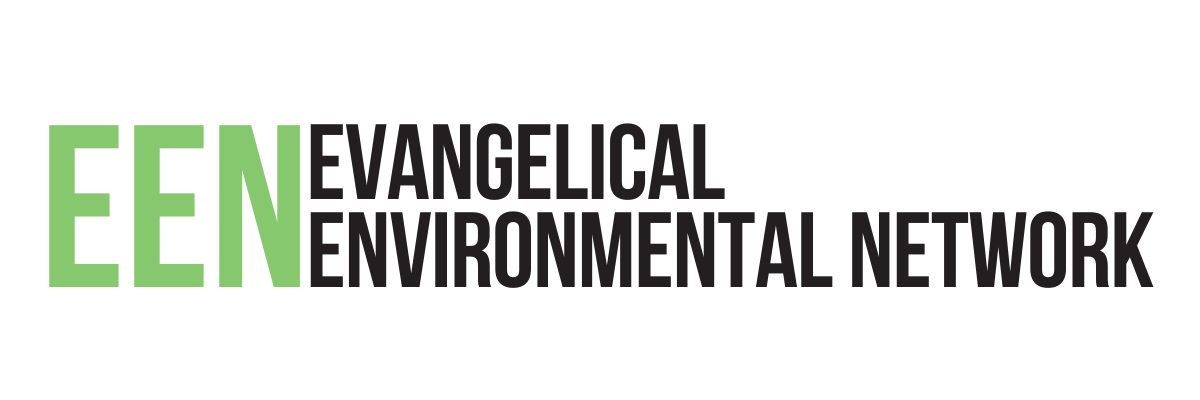
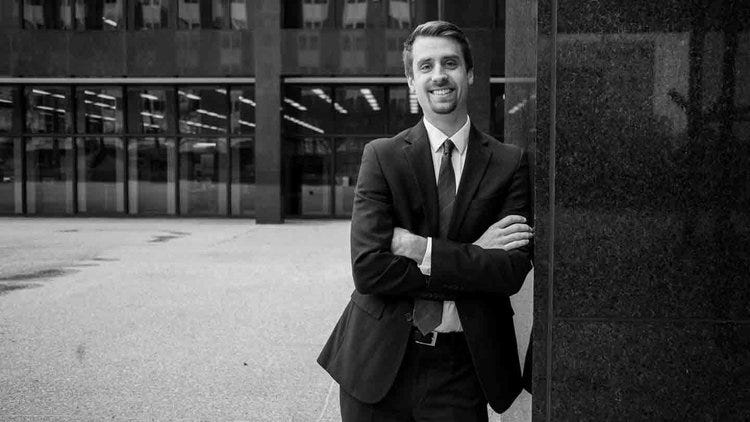
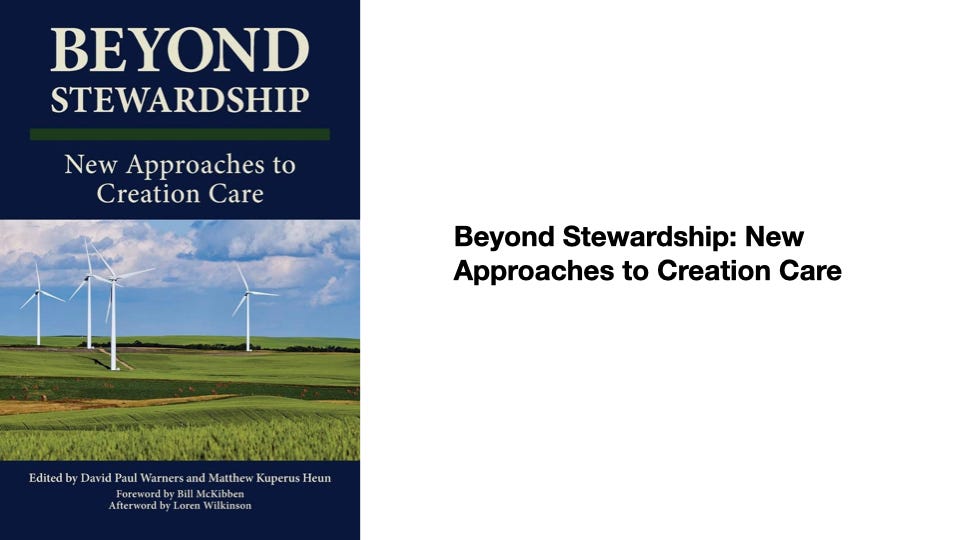

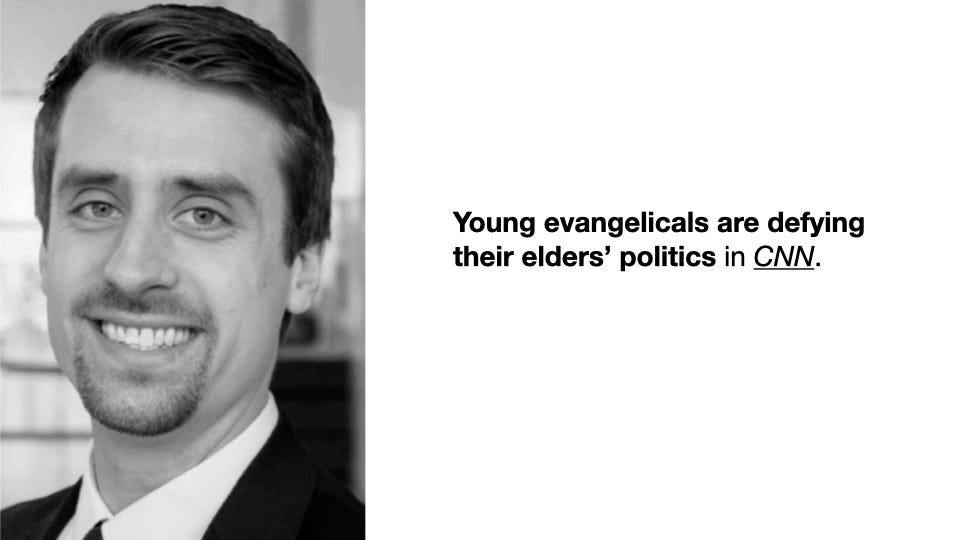
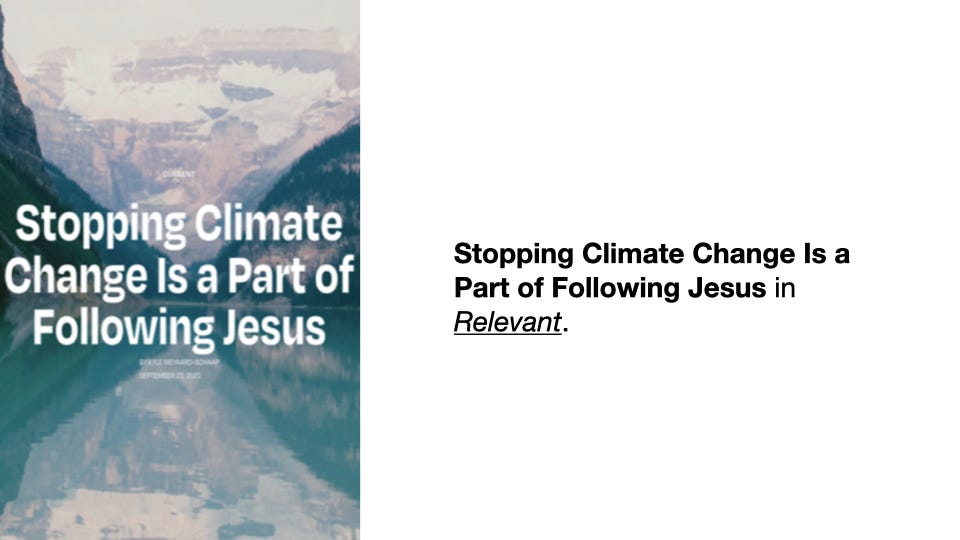

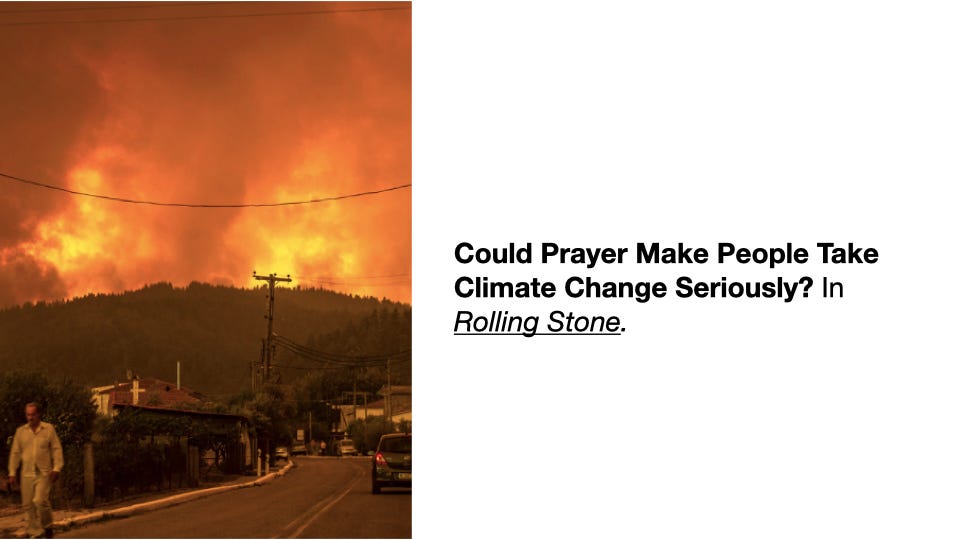
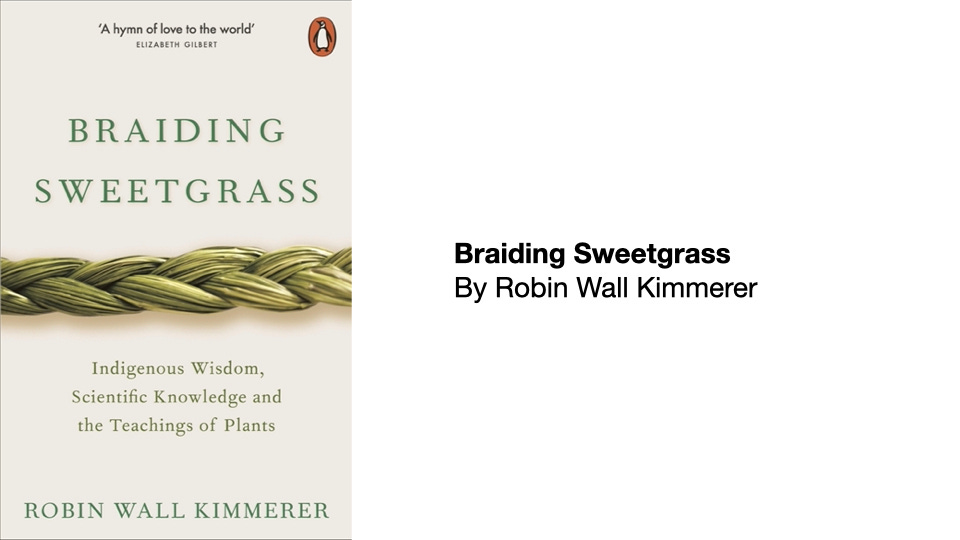



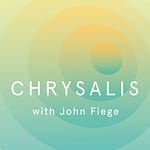
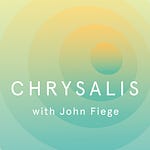
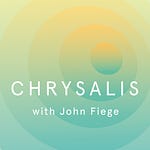
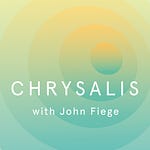
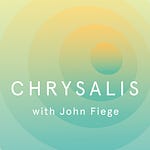
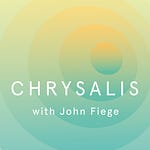

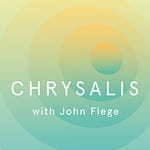
3. Rev. Kyle Meyaard-Schaap — The Biblical Call for Ecological Care